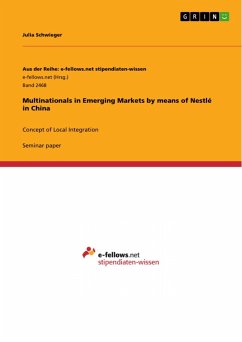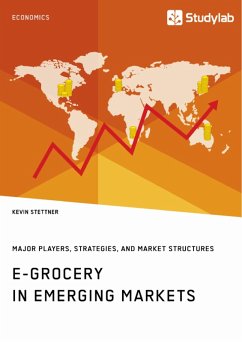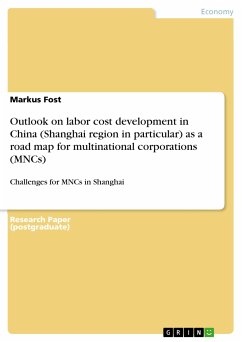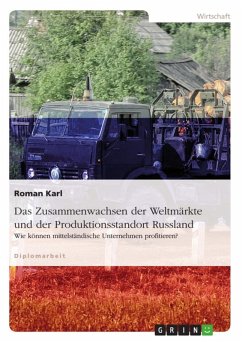Seminar paper from the year 2017 in the subject Business economics - General, grade: 1.0, EBC University Düsseldorf, language: English, abstract: The growing interdependence of countries and internationalization of companies is one of the most extensively discussed topics of the last decades. Not only international trade has risen strongly, but also foreign direct investments (FDI) have been increasingly conducted by expanding companies worldwide. Companies widening their range by seizing opportunities internationally are most likely able to fuel their growth, whereas the position of organizations that only operate nationally is continuously weakened. Therefore, especially big multinational corporations from developed countries, like Nestle or Unilever, strive to steadily expand their global presence in order to thrive in a highly competitive global market. Whereas emerging countries, like China or India, are popular to invest in for MNCs, internationalization is increasingly including companies from those developing nations as well. Additionally, those Emerging Market Multinationals (EMNCs) are not only gaining power on an international level but are also becoming effective local competitors for multinationals in their home markets. Hence, losing their market shares to the local competition, MNCs are forced to rethink their strategy in emerging markets. According to the new challenges, multinationals have to face in developing markets the following paper aims to analyze the competitive environment in emerging countries and thus derive promising approaches for MNCs to successfully stabilize their position. The analysis will be based on a theoretical background, including the description of general reasons for internationalization, foreign direct investments as an entry mode as well as the "Being International Strategies" according to Bartlett/Ghoshal (1989) and broader relevant models. Afterwards, the current situation and competitive environment in emerging markets will be outlined. The analysis itself will be conducted on the example of Nestlé in the Chinese market in order to further assess MNCs' position in developing countries. After giving a short company introduction, the Chinese food processing industry, as well as Nestlé's internationalization strategy, will be examined. In order to further assess the company`s position and performance in China Porter's 5 forces framework will be applied. To conclude, general implications for the competitive situation in emerging markets and MNC's strategies as well as an evaluation of Nestlé's position in China are derived and outlined.
Dieser Download kann aus rechtlichen Gründen nur mit Rechnungsadresse in A, B, BG, CY, CZ, D, DK, EW, E, FIN, F, GR, HR, H, IRL, I, LT, L, LR, M, NL, PL, P, R, S, SLO, SK ausgeliefert werden.









